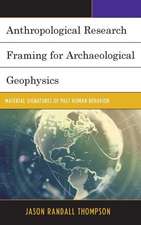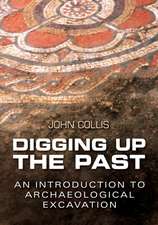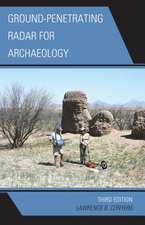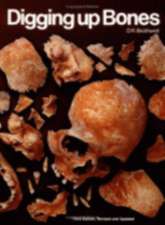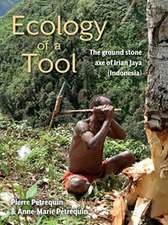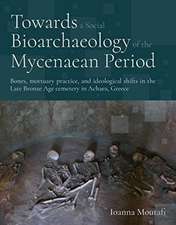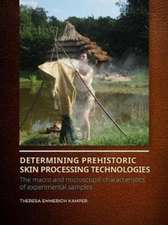Satellite Remote Sensing for Archaeology
Autor Sarah H. Parcaken Limba Engleză Paperback – 31 mar 2009
| Toate formatele și edițiile | Preț | Express |
|---|---|---|
| Paperback (1) | 442.89 lei 6-8 săpt. | |
| Taylor & Francis – 31 mar 2009 | 442.89 lei 6-8 săpt. | |
| Hardback (1) | 1226.31 lei 6-8 săpt. | |
| Taylor & Francis – 31 mar 2009 | 1226.31 lei 6-8 săpt. |
Preț: 442.89 lei
Recomandat Nou
Puncte Express: 664
Preț estimativ în valută:
84.74€ • 88.48$ • 70.14£
84.74€ • 88.48$ • 70.14£
Carte tipărită la comandă
Livrare economică 05-19 aprilie
Preluare comenzi: 021 569.72.76
Specificații
ISBN-13: 9780415448789
ISBN-10: 0415448786
Pagini: 320
Ilustrații: 11 black & white tables, 164 black & white halftones
Dimensiuni: 174 x 246 x 15 mm
Greutate: 0.61 kg
Ediția:1
Editura: Taylor & Francis
Colecția Routledge
Locul publicării:Oxford, United Kingdom
ISBN-10: 0415448786
Pagini: 320
Ilustrații: 11 black & white tables, 164 black & white halftones
Dimensiuni: 174 x 246 x 15 mm
Greutate: 0.61 kg
Ediția:1
Editura: Taylor & Francis
Colecția Routledge
Locul publicării:Oxford, United Kingdom
Cuprins
1. Introduction 2. A History of Satellite Remote Sensing for Archaeology 3. Satellite Image Types 4. Processing Techniques and Imagery Analysis 5. Landscape Approaches and Project Design 6. Case Studies 7. Remote Sensing and Survey 8. Conservation, Heritage Management, and the Ethics of Remote sensing in Archaeology 9.Conclusion
Descriere
This handbook is the first comprehensive overview of the field of satellite remote sensing for archaeology and how it can be applied to ongoing archaeological fieldwork projects across the globe. It provides a survey of the history and development of the field, connecting satellite remote sensing in archaeology to broader developments in remote sensing, archaeological method and theory, cultural resource management, and environmental studies. With a focus on practical uses of satellite remote sensing, Sarah H. Parcak evaluates satellite imagery types and remote sensing analysis techniques specific to the discovery, preservation, and management of archaeological sites.
Case studies from Asia, Central America, and the Middle East are explored, including Xi’an, China; Angkor Wat, Cambodia and Egypt’s floodplains. In-field surveying techniques particular to satellite remote sensing are emphasized, providing strategies for recording ancient features on the ground observed from space. The book also discusses broader issues relating to archaeological remote sensing ethics, looting prevention, and archaeological site preservation. New sensing research is included and illustrated with the inclusion of over 160 satellite images of ancient sites.
With a companion website with further resources and colour images, Satellite Remote Sensing for Archaeology will provide anyone interested in scientific applications to uncovering past archaeological landscapes a foundation for future research and study.
Case studies from Asia, Central America, and the Middle East are explored, including Xi’an, China; Angkor Wat, Cambodia and Egypt’s floodplains. In-field surveying techniques particular to satellite remote sensing are emphasized, providing strategies for recording ancient features on the ground observed from space. The book also discusses broader issues relating to archaeological remote sensing ethics, looting prevention, and archaeological site preservation. New sensing research is included and illustrated with the inclusion of over 160 satellite images of ancient sites.
With a companion website with further resources and colour images, Satellite Remote Sensing for Archaeology will provide anyone interested in scientific applications to uncovering past archaeological landscapes a foundation for future research and study.


